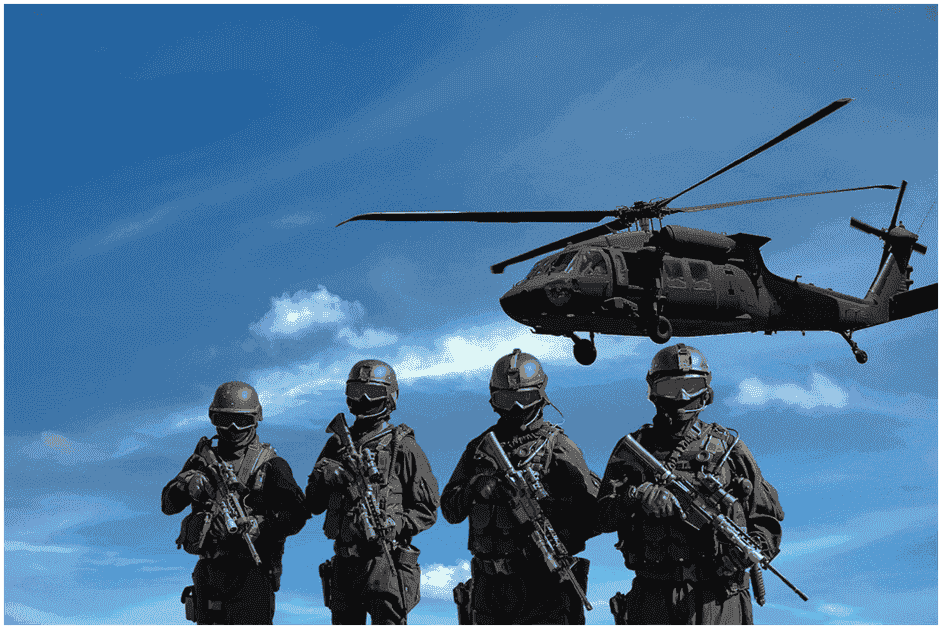| Posted on | Education
5 Frequently Asked Questions About Military Investigation
0
3715 Views

Military investigations are critical to maintaining discipline, accountability, and justice within the armed forces. However, the intricacies of these investigations can often be confusing or misunderstood by those outside the military sphere.
Military investigations attorneys at Military Law can assist you in navigating through the complexities of a military investigation.
We've compiled answers to five frequently asked questions about military investigations to shed light on this critical process.
What is a Military Investigation?
A military investigation is a systematic process conducted by military authorities to gather information, analyze evidence, and determine the facts surrounding an incident or allegation within the armed forces.
These investigations can cover various issues, including criminal offenses, misconduct, accidents, or violations of military regulations.
Military investigations are governed by specific laws, regulations, and procedures established by each country's military justice system. These processes ensure fairness, impartiality, and adherence to legal standards throughout the investigation.
Who Conducts Military Investigations?
Military investigations are typically conducted by trained personnel within the military's investigative branch or unit. These investigators may be uniformed armed forces members, often with specialized training in law enforcement, forensics, or intelligence gathering.
Depending on the nature and complexity of the case, military investigations may involve multiple agencies or departments, including military police, legal teams, and specialized units such as the Judge Advocate General's Corps (JAG) in the United States.
What Triggers a Military Investigation?
Military investigations can be initiated in response to various triggers, including:
- Allegations of criminal activity or misconduct: Accusations of offenses ranging from theft and assault to more serious crimes like espionage or war crimes may prompt an investigation.
- Accidents or incidents: Military investigations may be launched following accidents involving equipment, vehicles, or personnel, as well as incidents such as friendly fire or unauthorized use of force.
- Violations of military regulations: Breaches of military protocols, rules of engagement, or codes of conduct may warrant investigation to ensure accountability and uphold discipline within the ranks.
Military investigations are often initiated based on reports filed by service members, witnesses, or civilian authorities, triggering a formal inquiry by the military's investigative bodies.
What are the Key Stages of a Military Investigation?
Military investigations typically follow a structured process, which may include the following key stages:
- Initial inquiry: The investigation begins with an initial assessment of the allegations or incident to determine the required scope, jurisdiction, and resources.
- Evidence collection: Investigators gather evidence through interviews, forensic analysis, surveillance, and other investigative techniques to establish the facts of the case.
- Analysis and evaluation: Collected evidence is analyzed to determine its relevance, credibility, and consistency in establishing what occurred.
- Conclusion and recommendations: Based on the findings, investigators reach conclusions regarding the validity of the allegations and may recommend further actions, such as disciplinary measures, legal proceedings, or policy changes.
- Report and documentation: A formal report documenting the investigation's findings, conclusions, and recommendations is prepared for review by military authorities, legal advisors, and other stakeholders.

What Rights Do Service Members Have During a Military Investigation?
Service members undergoing a military investigation are entitled to certain rights and protections, including:
Right to counsel: Service members must consult with legal counsel throughout the investigation, including military defense attorneys or civilian lawyers.
Right to remain silent: Similar to civilian rights, service members have the right to remain silent to avoid self-incrimination. However, they may be required to cooperate with certain aspects of the investigation, such as providing statements or evidence.
Right to due process: Service members are entitled to a fair and impartial investigation conducted by military law and regulations. This includes the right to challenge evidence, cross-examine witnesses, and appeal decisions through established channels.
Understanding these rights is essential for service members involved in military investigations to ensure their interests are protected and to uphold the principles of justice and accountability within the armed forces.
Final Word
Military investigations are vital in maintaining discipline, accountability, and integrity within the armed forces worldwide. Understanding the basics of these investigations can help demystify the process and promote transparency and trust between military personnel and society. If you have further questions or concerns about a military investigation, seek guidance from your chain of command or legal counsel for more information.
